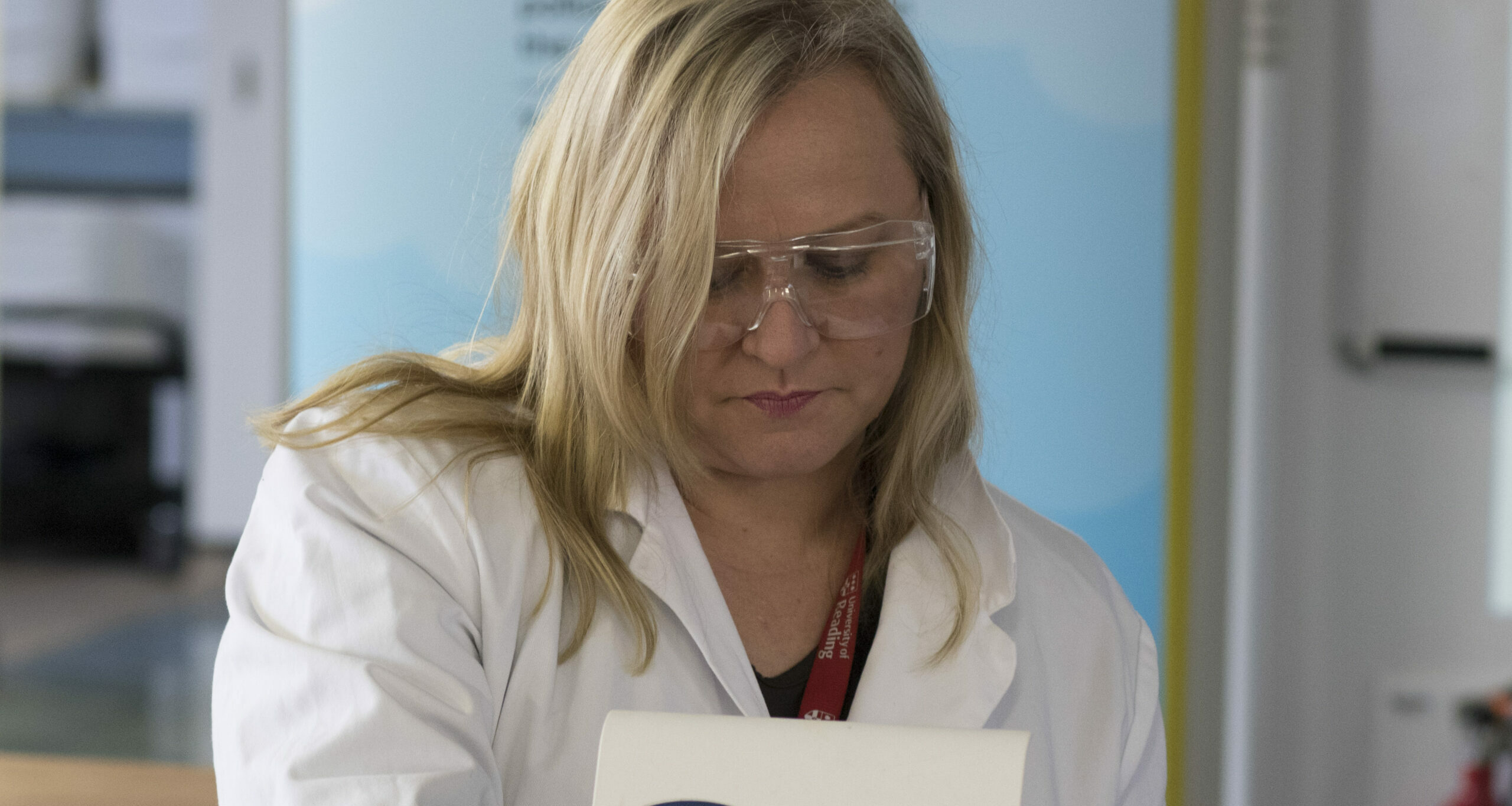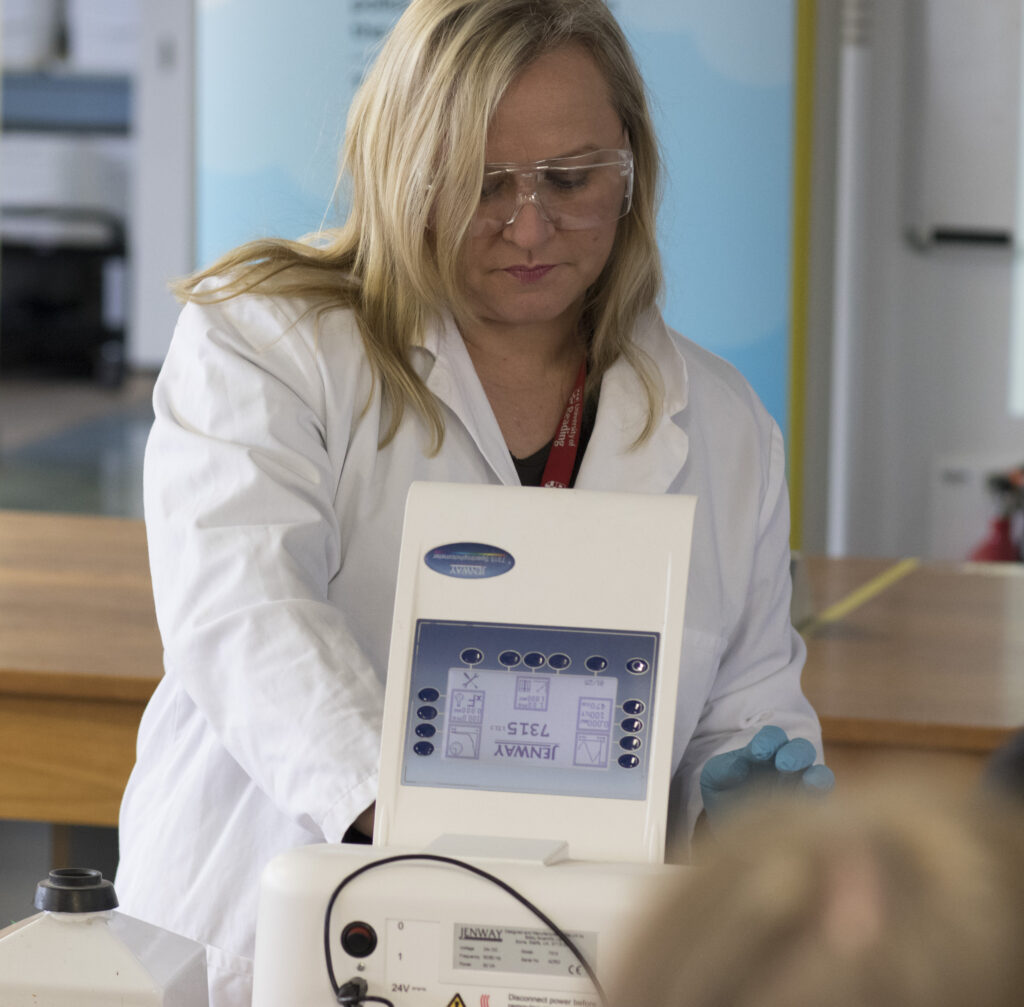Marta O’Brien is a Senior Technician in Analytical Chemistry at the University of Reading, as well as a researcher completing a PhD on air quality. She is part of a new initiative called Clean Air Living Matters (CALM), an air quality education programme being rolled out to schools across Reading. In this profile for National Careers Week, Marta reflects on the challenges and rewards of her research career.
Tell us a little about yourself and your background
I am a Chartered Environmental Scientist with extensive experience in analytical chemistry, acquired through my work with commercial organisations. I specialise in comprehensive analyses of soil, water, and air samples to identify various environmental contaminants. Throughout my career, I have collaborated closely with numerous clients, ensuring that the results I provide follow the rigorous standards established by the United Kingdom Accreditation Service.
Tell us about your role
I joined the University of Reading in late 2018 as a member of the Technical Services team. In this role, I primarily support teaching and research activities within the School of Archaeology, Geography, and Environmental Science. Alongside my responsibilities in analytical chemistry, I offer assistance to both students and staff within the school and wider organisation. It was during this period that I began to explore opportunities for further involvement in research within the environmental field.
My interest in air pollution by schools gates was triggered by my personal experiences during the school drop-off and pick-up routines with my own children. Motivated by this, I applied to the Doctoral and Researcher College and commenced my PhD research focusing on air quality in September 2020.
Describe a typical working day for you
Within my role, I offer support for both teaching and research, directly assisting students and academic staff. This requires a range of tasks, including facilitating group activities during teaching sessions, guiding individual students through laboratory experiments for their dissertations, and conducting research as part of independent projects. Additionally, I am responsible for overseeing laboratory spaces, maintaining and operating scientific instrumentation housed within them.
I also have the privilege of supporting the annual field class to Stirling for our second-year undergraduate students, typically held in April. While this part of my job is incredibly rewarding, ensuring that every student has the opportunity to benefit from field teaching and acquire relevant knowledge, it can also be very demanding.
What is the most challenging part of your job?
Managing the number of requests from both students and staff, seeking various forms of support, demands a high level of organisation. Consequently, there’s a constant expectation to provide top-level service promptly and efficiently from the very start. This pressure increases, especially when faced with urgent requests that require immediate attention. Balancing these demands while ensuring the delivery of high-quality service is a challenging yet rewarding aspect of my role.
What is the best part of your job?
I find great satisfaction in witnessing students enhance their knowledge and laboratory skills, as well as in seeing them succeed in their research activities. Attending the final presentations of their research projects is particularly rewarding for me. Additionally, I enjoy supporting academic staff in delivering teaching sessions and contributing to the planning and implementation of new educational activities.
In my PhD research, I am particularly drawn to engaging with families and children, employing a citizen science approach to educate them about air quality. Conducting educational sessions at schools allows me to fulfil my mission of implementing an understanding and raising awareness on this critical subject. I am dedicated to providing support and guidance while striving to make a positive impact.


